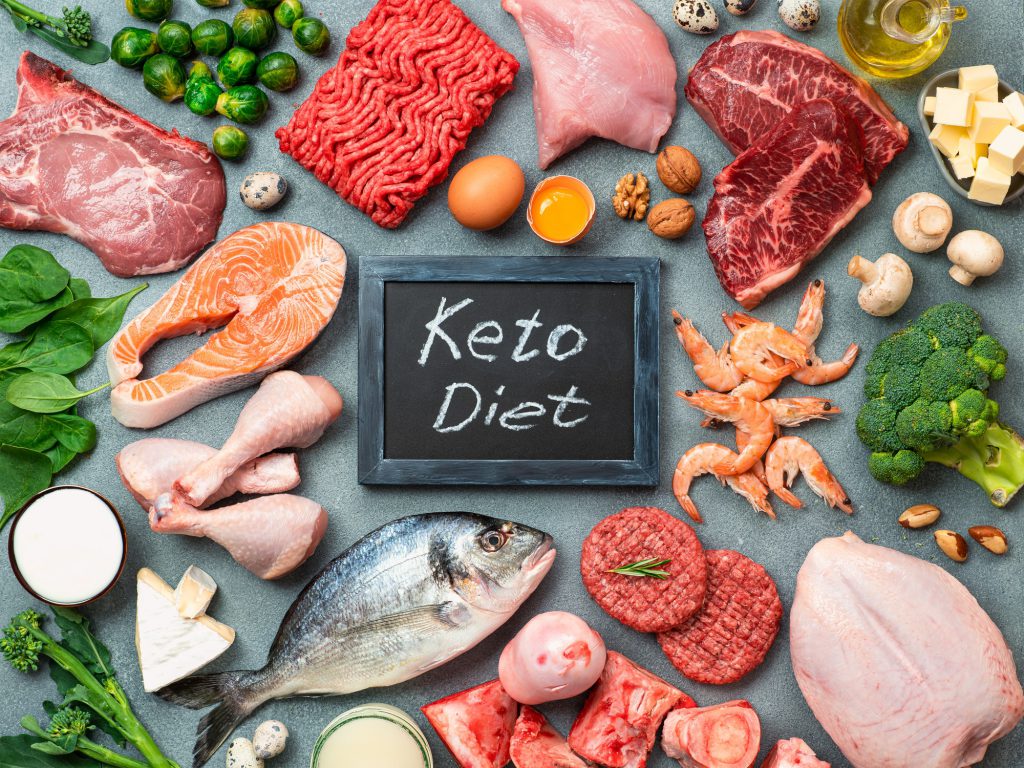
Keto Diet
Description
The Keto Diet (or Ketogenic Diet) is a low-carbohydrate, high-fat diet designed to shift your body's primary energy source from carbohydrates to fats, leading to a metabolic state called ketosis. In ketosis, the body burns fat for fuel instead of glucose (sugar).
How does the Keto Diet work?
When you reduce your carbohydrate intake, your blood sugar (glucose) levels drop. As a result, your liver starts producing ketones from stored fat, which then become the main energy source for your body. This process encourages fat burning and helps with weight loss.
Foods to Eat and Avoid:
-
Foods to Eat:
-
Healthy fats: Olive oil, coconut oil, butter, avocado.
-
Meats: Chicken, beef, fish, pork.
-
Cheese: Full-fat cheese varieties.
-
Low-carb vegetables: Spinach, kale, broccoli, cucumbers.
-
Nuts and seeds: Almonds, walnuts, sunflower seeds.
-
-
Foods to Avoid:
-
Sugary foods: Candies, sodas, baked goods.
-
High-carb foods: Bread, pasta, rice, cereals.
-
Fruits: Especially high-sugar fruits like bananas and apples.
-
Processed foods: Canned or packaged food with added sugars or preservatives.
-
Potential Benefits:
-
Weight loss: The body becomes more efficient at burning fat for energy, leading to fat loss.
-
Blood sugar control: It may help lower blood sugar levels and improve insulin sensitivity, especially for people with type 2 diabetes.
-
Mental clarity and sustained energy: Ketones provide a more stable and long-lasting energy source compared to glucose, which can lead to improved focus and less energy crashes.
Potential Downsides or Risks:
-
In the beginning, some people may experience Keto Flu, a set of symptoms including headaches, fatigue, dizziness, and nausea as the body adjusts.
-
It can be challenging to stick to in the long term because of its strict food limitations.
-
There could be nutritional deficiencies (e.g., vitamins and minerals) if the diet is not well-balanced.
3 weeks ago